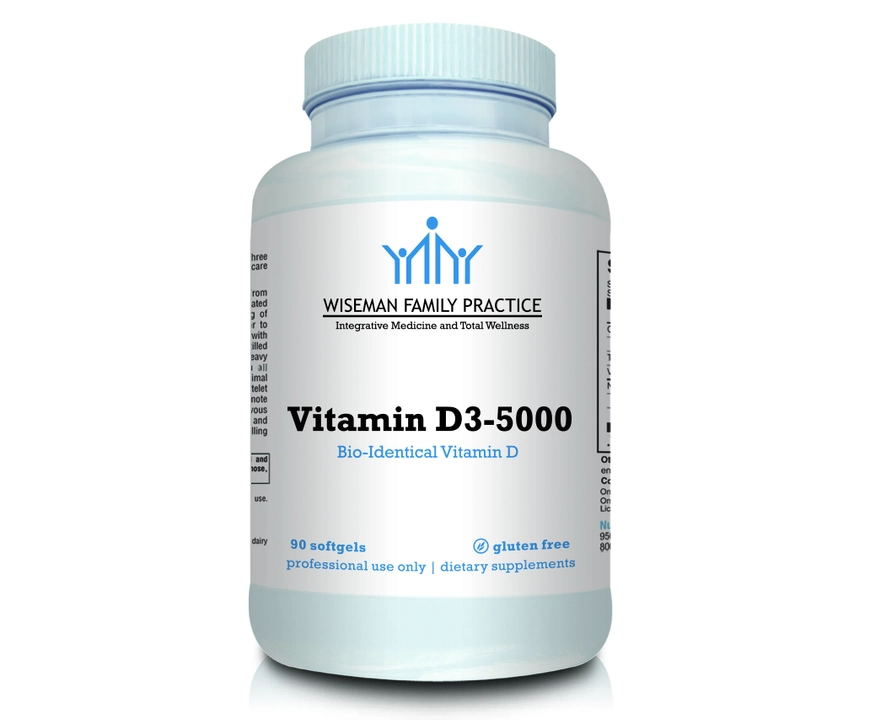Understanding the Connection between Anemia and Thyroid Health
When it comes to maintaining our overall health and wellness, hormone balance is a crucial factor. One aspect of hormone balance that people might not be aware of is the connection between anemia and thyroid health. In this section, we will explore the relationship between these two conditions and how nutritional deficiencies can impact hormone balance in the body.
Anemia is a condition where the body lacks enough healthy red blood cells to carry oxygen to the body's tissues. This can result in fatigue, shortness of breath, and other symptoms. On the other hand, the thyroid gland is responsible for producing hormones that regulate metabolism, growth, and development. When there is an issue with the thyroid gland, it can lead to problems with energy levels, weight management, and other bodily functions.
The link between anemia and thyroid health is that both conditions can be caused by a lack of essential nutrients in the diet. For instance, iron deficiency is a common cause of anemia, while iodine deficiency is a leading cause of thyroid disorders. Therefore, it is important to ensure that our diets contain adequate levels of these nutrients to promote optimal hormone balance and overall health.
The Role Nutritional Deficiencies Play in Anemia and Thyroid Health
Nutritional deficiencies can have a significant impact on both anemia and thyroid health. When our bodies are not receiving the necessary nutrients, it can lead to an imbalance in hormone production and function, which can contribute to the development of these conditions. In this section, we'll look at the specific nutrients that play a critical role in anemia and thyroid health, as well as how deficiencies in these nutrients can affect hormone balance.
Iron is a key nutrient in the production of red blood cells, which carry oxygen throughout the body. When we don't get enough iron in our diets, it can lead to a decrease in the number of red blood cells and the development of anemia. Similarly, iodine is essential for the production of thyroid hormones, which regulate metabolism and other vital functions. Without sufficient iodine, the thyroid gland cannot produce the necessary hormones, leading to thyroid disorders such as hypothyroidism or goiter.
Other nutrients that can impact anemia and thyroid health include vitamin B12, folate, and selenium. Vitamin B12 and folate deficiencies can lead to a specific type of anemia known as megaloblastic anemia, while a lack of selenium can contribute to thyroid dysfunction. By ensuring our diets are rich in these important nutrients, we can help maintain proper hormone balance and support overall health.
Identifying and Addressing Nutritional Deficiencies
Being aware of the signs and symptoms of nutritional deficiencies is essential for maintaining optimal hormone balance and overall health. In this section, we'll discuss how to identify potential deficiencies in the key nutrients that impact anemia and thyroid health, as well as how to address these deficiencies through dietary changes and supplementation.
Common signs of iron deficiency may include fatigue, pale skin, and shortness of breath. For iodine deficiency, symptoms can include weight gain, fatigue, and dry skin. If you suspect you might be experiencing a deficiency in one or more of these nutrients, it's essential to consult with a healthcare professional for proper diagnosis and treatment.
Addressing nutritional deficiencies often involves making dietary changes to incorporate foods rich in the necessary nutrients. For example, incorporating iron-rich foods like red meat, spinach, and lentils can help combat iron deficiency, while consuming iodine-rich foods like seafood, dairy products, and iodized salt can support thyroid health. In some cases, supplementation may be recommended by a healthcare professional to ensure adequate nutrient intake.
How a Balanced Diet Supports Hormone Health
A balanced diet is crucial for supporting hormone health and preventing the development of conditions like anemia and thyroid disorders. In this section, we'll explore the importance of a well-rounded diet and how it can help maintain proper hormone balance in the body.
A balanced diet should include a variety of nutrient-dense foods from all food groups, including fruits, vegetables, whole grains, lean proteins, and healthy fats. By consuming a diverse range of foods, we can ensure that our bodies receive the necessary nutrients to support hormone production and function.
In addition to consuming adequate amounts of iron and iodine, it's important to include foods rich in other nutrients that support hormone health, such as vitamin B12, folate, and selenium. By focusing on a balanced, nutrient-dense diet, we can help maintain proper hormone balance and reduce the risk of developing anemia and thyroid disorders.
Supplements for Anemia and Thyroid Health
In some cases, diet alone might not be sufficient to address nutritional deficiencies and support hormone health. In these instances, supplements can be a valuable tool to ensure that our bodies receive the necessary nutrients. In this section, we'll discuss the role of supplements in addressing anemia and thyroid health, as well as how to choose the right supplements for your needs.
Supplements can be particularly helpful for individuals who have difficulty absorbing nutrients from food or who have dietary restrictions that make it challenging to consume adequate amounts of certain nutrients. Iron, iodine, vitamin B12, and folate supplements are commonly used to address deficiencies related to anemia and thyroid health.
When choosing supplements, it's essential to consult with a healthcare professional to determine the appropriate dosage and form for your individual needs. Additionally, it's important to select high-quality supplements from reputable manufacturers to ensure safety and efficacy.
Final Thoughts on Anemia, Thyroid Health, and Hormone Balance
In conclusion, understanding the connection between anemia, thyroid health, and hormone balance is essential for maintaining overall health and wellness. By being aware of the role that nutritional deficiencies can play in the development of these conditions, we can take steps to ensure that our diets are rich in the necessary nutrients to support hormone health.
Remember to consult with a healthcare professional if you suspect that you might have a nutritional deficiency or if you're considering supplementation. By taking a proactive approach to maintaining hormone balance through proper nutrition, we can reduce the risk of developing anemia and thyroid disorders and support optimal health.







Alexis Hernandez
May 1, 2023 AT 05:33brajagopal debbarma
May 1, 2023 AT 22:04Carly Smith
May 3, 2023 AT 11:57Kurt Stallings
May 3, 2023 AT 16:35Angie Creed
May 5, 2023 AT 14:34Michael Ferguson
May 6, 2023 AT 11:14Patrick Klepek
May 6, 2023 AT 14:57Caden Little
May 7, 2023 AT 07:44Sebastian Brice
May 7, 2023 AT 12:59Jim Aondongu
May 7, 2023 AT 20:50Michael Schaller
May 8, 2023 AT 23:01Kyle Tampier
May 10, 2023 AT 14:55Tom Caruana
May 12, 2023 AT 09:32Muzzafar Magray
May 13, 2023 AT 17:10Renee Williamson
May 15, 2023 AT 16:01